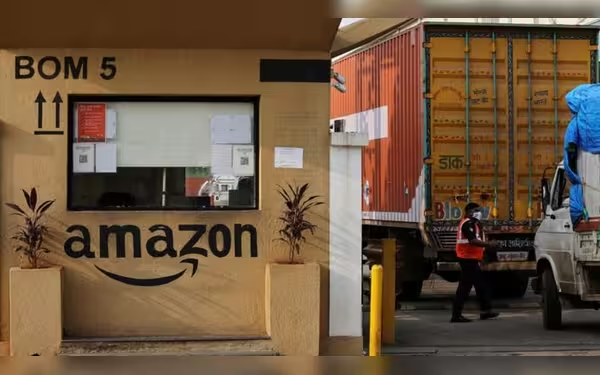Saturday, November 16, 2024 10:36 PM
India Summons Amazon, Flipkart Executives Amid Regulatory Scrutiny
- India's Enforcement Directorate intensifies scrutiny on Amazon and Flipkart.
- Raids conducted on sellers linked to major e-commerce platforms.
- Investigation reveals potential violations of foreign investment laws.
 Image Credits: channelnewsasia
Image Credits: channelnewsasiaIndia's Enforcement Directorate summons Amazon and Flipkart executives amid growing scrutiny over foreign investment law violations.
In recent developments, India's financial crime agency is intensifying its scrutiny of major e-commerce players, specifically Amazon and Flipkart. This comes in the wake of allegations regarding violations of foreign investment laws. The agency's actions are particularly noteworthy given the rapid growth of these companies in India's booming e-commerce market, which is valued at approximately $70 billion.
The Enforcement Directorate has been investigating these companies for several years, focusing on claims that they exert control over the inventory of goods through select sellers. According to Indian laws, foreign e-commerce firms are prohibited from holding inventory of the products they sell, meaning they can only operate as marketplaces for independent sellers. However, findings from an antitrust investigation have suggested that both Amazon and Flipkart may have breached these regulations by favoring certain sellers.
Recently, the Enforcement Directorate conducted raids on some sellers associated with Amazon and Flipkart, which have led to the decision to summon executives from both companies for questioning. The agency is currently reviewing documents that were seized during these operations, which reportedly took place over several days. A senior government source indicated that these searches have provided evidence of potential violations of foreign investment rules.
As part of the ongoing investigation, the Directorate plans to analyze business data from the sellers and their interactions with the e-commerce giants over the past five years. This thorough examination aims to uncover any irregularities in their business practices. Notably, a previous investigation revealed that Amazon had significant control over the inventory of some of its largest sellers, despite the legal restrictions in place.
Among those raided was Appario, once recognized as Amazon's largest seller in India. Reports suggest that Appario was treated as a "special" merchant, receiving preferential treatment such as discounted fees and access to exclusive retail tools. This raises questions about the fairness of competition in the e-commerce sector, particularly for smaller players who may not have the same advantages.
The scrutiny of online shopping platforms is not limited to Amazon and Flipkart. Other companies, such as food delivery services Zomato and Swiggy, have also come under fire for allegedly favoring select restaurants on their apps. This trend indicates a growing concern among regulators regarding the business practices of large corporations and their impact on smaller competitors.
As the investigation unfolds, it remains to be seen how these developments will affect the operations of Amazon and Flipkart in India. The outcome could have significant implications for the future of e-commerce in the country, particularly as it strives to balance the interests of large corporations with those of smaller businesses. For consumers, this situation highlights the importance of fair competition in ensuring a diverse marketplace where all players can thrive.













